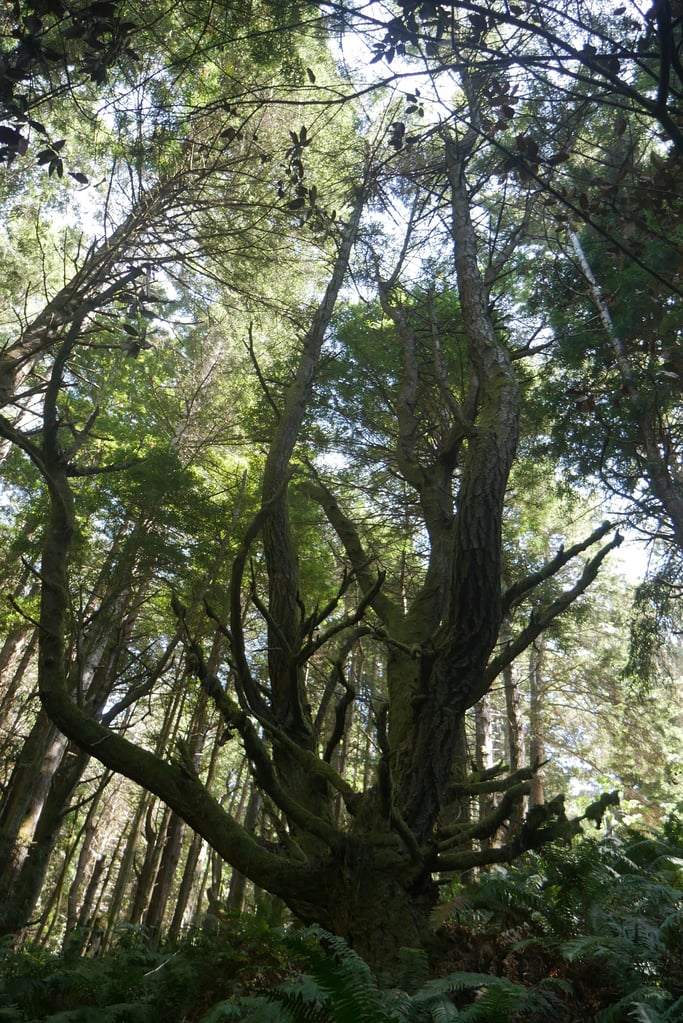The masked park ranger walked past and out of the cove, leaving me alone with the dog on a sun-splattered beach.
Normally having a stunning piece of the California coast to myself on a warm summer day would be a boon. Today was different.
That morning the same ranger had informed me our campground might be evacuated if the wind shifted and sent a fire a few miles to the south — sparked by a recent lightning storm — in our direction.
When I said I planned on hiking much of the day, she told me to keep an eye on the sky and return if it turned smoky. She wasn’t too worried.
Probably a bit overcautious given the sky of uninterrupted blue all around Stillwater Cove Regional Park, and the forecast predicting the wind would continue blowing in from the ocean, I did not begrudge them.
Necessary at all times in a fire-prone state with tinder-dry vegetation built up in many areas through more than a century of misguided policy dictating every fire must be put out and every structure saved, the death of 85 in an inferno that destroyed much of the town of Paradise in 2018 reinforced the need for vigilance.
Like Paradise, there is only one way out of Stillwater Cove, the slow, winding two-lane Route 1, and authorities had closed the road a few miles south of the park due to the fire.
One accident or disabled car heading north could stop and strand evacuees in the path of a raging inferno.
Any lingering concerns disappeared when we set foot on what is called the dead-end trail in a forest painted with shafts of afternoon sun.




Sweating in short order, I stripped off my sweatshirt, poured a bit of water for Klaus the dog, then a bit more, only to realize I had little left for myself. I did have a can of beer in my backpack. Not what I needed now.
We hiked up, up, up. After a while I became certain every corner would reveal the fence at the edge of park, but no, just the next hill.
Perhaps we should have tackled this trail before a morning cliffside hike and a detour to a one-room schoolhouse carted to the park from nearby Fort Ross for preservation.
Visions of enjoying the beer at the picturesque cove far below eventually defeated my irrational need to finish the trail. We turned around.
Deep into a book and the can of beer, I looked up to see the same ranger who’d talked to me that morning in conversation with a couple. They pointed to bluffs at the far end of the cove where a family had headed earlier, stood up and walked out. The ranger moved on to three young people drinking beer. They too got up and left. She called out for the family, then approached me. I waved. Apparently still looking for the family, she didn’t see me.

Figuring the evacuation order must have come, and if not, my beer can was empty, I set out for the campground where a fellow who had chatted me up at every opportunity talked to a male ranger.
“Let’s go with that then, there is a sincere belief we need to do this,” I heard the ranger say.
“So are we getting the boot?” I asked while petting the man’s dog, who had come to say hi to Klaus.
“Mixed signals,” his female companion replied.
“Sorry, but we have to go,” he said, picking up the pooch and putting him in their van.
“We have a dinner reservation at 6,” she declared. “We’re not going anywhere.”





















